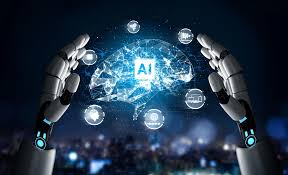1. Economic and Workforce Impacts
Positive Effects:
Increased productivity: AI can automate repetitive tasks, optimize logistics, and improve efficiency across industries.
New job creation: Growth in AI-related fields (e.g., data science, robotics, ethics, AI law).
Smarter decision-making: Businesses can leverage AI analytics to make better strategic decisions.
Challenges:
Job displacement: Routine and manual jobs may be replaced by automation (e.g., manufacturing, customer service, transport).
Widening inequality: High-skilled AI experts and companies could benefit more, increasing economic disparity.
Reskilling needs: Workers will need to adapt to new, AI-driven roles.
�� 2. Education and Learning
Personalized learning: AI tutors can adapt to each student’s learning style and pace.
Automation of administrative tasks: Teachers will spend less time grading and more time on teaching and mentorship.
Access to global education: AI translation and adaptive platforms can make learning accessible across languages and regions.
�� 3. Healthcare and Medicine
Early diagnosis: AI systems can detect diseases like cancer or Alzheimer’s from scans long before humans can.
Drug discovery: AI can dramatically speed up the process of identifying new medicines.
Telemedicine: AI assistants can help doctors reach patients in remote or underserved areas.
Concerns:
Data privacy: Sensitive health data must be handled securely.
Bias in medical AI: If trained on biased data, AI may make unfair or unsafe recommendations.
�� 4. Society and Ethics
Surveillance and privacy: AI-driven monitoring tools raise questions about personal freedom and state control.
Misinformation: AI-generated deepfakes and fake news could undermine trust in media and institutions.
Ethical AI: Governments and organizations will need frameworks to ensure AI behaves safely, fairly, and transparently.
�� 5. Creativity and Culture
Art and content creation: AI can now write music, paint, compose poetry, and create realistic films or games.
Human-AI collaboration: Artists and creators can use AI as a tool to expand imagination and productivity.
Authenticity concerns: Questions arise about what counts as “human-made” versus “AI-made.”
�� 6. Long-Term and Existential Effects
Artificial General Intelligence (AGI): If AI reaches or surpasses human-level intelligence, it could revolutionize society — or pose risks if not aligned with human values.
Global governance: Nations will need to cooperate to prevent misuse, control weaponization, and ensure equitable access.
�� In Summary
The future of AI holds both extraordinary promise and significant risk. Its impact will depend not just on technological advancement, but on how humanity chooses to govern, regulate, and integrate it into society.



